
"Personally, I would love to cry for once. You know it’s something I don’t really do so for once I would love to open up and cry you know. I feel like you know maybe some of the river that is inside some of the things that I’ve kept inside would actually go away if I start crying" (men’s group participant, 2013).
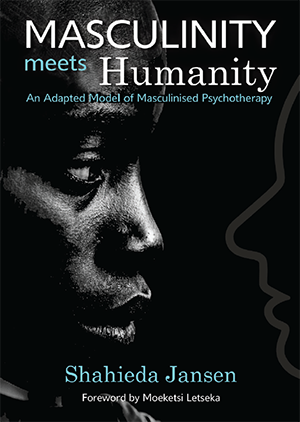 The above yearning for the liberation of emotional intimacy was expressed during an interview by a 30-something Xhosa speaking men’s group participant as he reflected on the stern warnings of his only male role model, his grandfather, against emotional expression. For many men, this theme of manhood socialisation as littered with phrases such as "indoda ayikhali – a man does not cry", "man-up" or "why are you being so sensitive like a girl", might resonate. It's possible that both men and women have the misconception that showing human emotions, and by extension, masculine humanity, is a betrayal of "true" manhood.
The above yearning for the liberation of emotional intimacy was expressed during an interview by a 30-something Xhosa speaking men’s group participant as he reflected on the stern warnings of his only male role model, his grandfather, against emotional expression. For many men, this theme of manhood socialisation as littered with phrases such as "indoda ayikhali – a man does not cry", "man-up" or "why are you being so sensitive like a girl", might resonate. It's possible that both men and women have the misconception that showing human emotions, and by extension, masculine humanity, is a betrayal of "true" manhood.
Dr Shahieda Jansen, the current Acting Regional Director of Unisa’s Western Cape Region, is a clinical psychologist by training. Before coming to Unisa, she was the manager of Student Counselling Services at the University of the Western Cape (UWC). It was there that she had expanded the therapeutic offerings by initiating a culture and practice of group psychotherapy. An accidental encounter with just male participants arriving for the first session of a new group in the first semester of 2009 later led to purposeful recruitment of male students as men’s group participants, and intentional fluency in male-focused or masculinised psychotherapy on the UWC campus.
In 2010, she expanded the men’s groups to her small private practice adding father-son consultations, individual and couple’s as well as family therapy to the menu of private psychotherapy services. Shahieda later captured the emotional experiences of participants of all-male psychotherapy groups in her PhD thesis.
Her book that has just been published by Unisa Press is aptly titled, Masculinity Meets Humanity: An Adapted Model of Masculinised Psychotherapy. The book launch took place on 5 December 2022 at the Parow Campus of the Unisa Western Cape Region.
The central concern of the book is with masculinised mental health services for boys and men who choose to tolerate the experience and expression of negative emotions, and are willing to suffer discomfort and endure vulnerability, to achieve personal transformation and relief from psychosocial distress. In this book, Jansen outlines the model of masculinised psychotherapy that had organically evolved over several years of persistently adapting the therapy so that it is relevant to the cultural practices and behavioural norms of local boys and men.
In this book, she describes the masculinised psychotherapy approach that emerged in response to efforts to make the psychotherapeutic process more accessible to young men who sought psychotherapeutic help at a university student counselling centre. "I consider manhood-sensitive psychotherapy to be a practical therapeutic affirmation of the meaning frames of clients who frequently present with serious socioeconomic issues as well as unresolved developmental and ongoing psychological traumas."
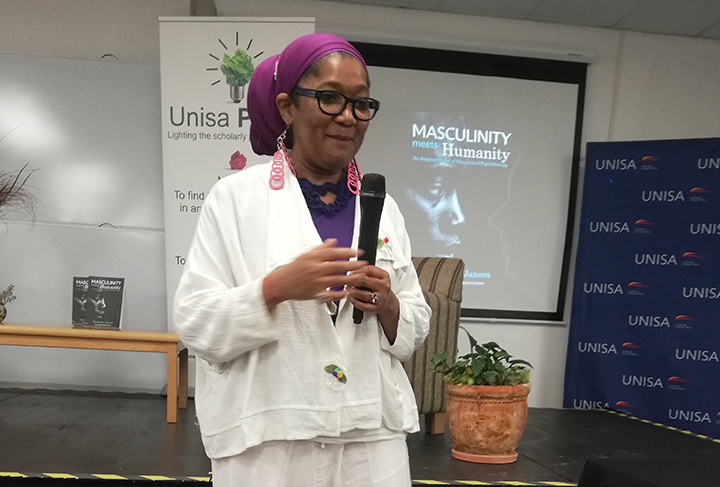
Author Dr Shahieda Jansen speaking at the launch of her book
Jansen reflects that initially she had assumed, like most other professionals and lay people alike, that emotional engagement was the sole preserve of women and girls. She was forced to revaluate her belief that only women and girls were capable of emotional involvement, personal growth and self-change because of men’s group members' genuine interest in their own personal transformation and their emotional agility. She began to challenge the common perception that men are less committed and motivated to going through therapeutic transformation.
In the book, she explains that in an explicitly male therapeutic framework, masculinised psychotherapy promotes gender-consistent and gender sensitive personal growth and transformation. The removal of women from a psychotherapy group arouses several dynamics among the remaining men’s group participants. The absence of women liberates men from their usual socialised scripts of how they ought to behave in the presence of women, which means that the men can then focus on their internal and interpersonal therapeutic process.
"Secondly, all the emotional tasks in that psychotherapy group become the responsibility of the men. They listen, reflect each other’s feelings, experience emotions like sadness and hurt, and support each another in the tasks of grieving and the resolution of symptoms. Lastly, in the absence of women men can engage their feelings in accordance with their own worldview, values, and practices. They can express their emotions at their own pace or in a style that is more action-oriented, utilising their chosen masculine symbolism, or they can combine the expression of depressing emotions with humour, as I occasionally see men's group participants do."
Jansen’s book supports the current turn towards engagement of male wellness and distress. It also highlights the importance of holistic engagement of men that reveals male complexity. It is hoped that more would be done to enquire how men make meaning of their condition and how they manage their distress as well as the kind of solutions to their distress that they would support.
"Men’s groups have been found to be an important source of social support for men and a location from which to acquire new ways of being with themselves and others. A men’s group creates a container in which men can be cared for by other men for supportive crisis management. In a men’s group a man can engage his vulnerability, while having his manhood affirmed through the presence of male others. All-male psychotherapy groups are a mental health context which can yield knowledge of how men forge emotional intimacy with themselves and other men. These groups may improve our understanding of male help-seeking behaviours and their use of male-friendly mental health spaces."
According to Jansen, there has been an increase in male-focused mental health services, and some men are responsive to marketing and recruitment methods for the field of mental health, even if males still lag women in being the target of health and wellness treatments. Despite literature claiming that men lack self-awareness and are reluctant to seek help, research also shows that men are capable of self-monitoring their health and are interested in how their mental health performs.
Jansen emphasises her concern that boys and men are sometimes stereotyped as being stoic and devoid of the typical worries and fears that are a natural part of being human. She said that because of her time spent with males in therapeutic settings, she had something to say about the value of creating safe spaces where boys and men can process difficult emotions and receive support for self-transformation, as well as the importance of male-centred psychotherapy.
She claims that acknowledging masculine vulnerability is one of the most essential effects of male-focused emotion work. Men have a reputation for just having anger and aggression as emotions. This is accompanied by an unbalanced propensity to associate men with aggression and power, as well as a tendency to overlook masculine vulnerability. However, studies have shown that Black South African men in particular, are both dominant and vulnerable.
Men react with violence from a position of powerlessness. It is therefore not useful to locate distress in men, more especially Black men. Young Black men may appear fearless, while they are highly vulnerable to violence and many other social and health problems. "In this book, male gender is continuously reconnected to its social, structural, and cultural roots. I hope this is the message that comes through, that we take care not to separate gender from that which makes us fully human. Engaging men’s emotions brings me into direct contact with male humanity, and I am a privileged witness of the male capacity for self-reflexivity and personal transformation."
In this regard, Jansen argues that focusing on masculinity in psychotherapy increases the likelihood of addressing the underlying causes of many long-standing social issues, including extreme violence, persistent gender-based violence, and child abuse and neglect. "In this book I highlight masculinised psychotherapy as an intervention that helps men positively change for the benefit of men, women, and children."
"Male-focused psychotherapy contradicts prevailing beliefs that attribute social ill-health to women and categorise them as being more susceptible to certain issues and diseases than males. The results of more recent studies on the issues that men face indicate that men are, in fact, a gender population that need care on an equal basis with women. This article expands on the idea of male-focused psychotherapy as a component of more comprehensive strategies for promoting both male and female welfare and preventing violence."
In her book, Jansen makes no mention of a gender crisis. While she concedes that there is gender trouble, the latter is related to, and symptomatic of, societal distress. She explains that there is more evidence of socio-economic and racial inequality crises in South Africa.
Jansen makes it clear that the book is not meant to be a manual on how to conduct psychotherapy with men. Instead, it involves making sense of male-focused psychotherapy, coming up with guiding concepts, and framing psychotherapy for males. Through this book, I communicate with mental health professionals my ideas on the definitions and techniques of psychotherapy that is diversity conscious and culturally sensitive. There should be more emphasis on therapeutic involvement of the male client, hopefully complementing psychotherapy training that is sometimes limited to fragmented psychological theorising and the philosophically detached therapeutic skills of traditional psychotherapy.
She concludes: "I hope that this book will stimulate a different conversation about male gender. Taking a few steps back to look at gender from another angle might enable gender discussions to shift towards the inescapable interrelatedness of men, women, and everyone in between. The spectre of a female body in a men’s group is an almost visceral assertion of the frequently intertwined fate of men and women. It is a plucky pushback from the trenches of masculinised psychotherapy against malicious gender dichotomies that fail to acknowledge the vital interconnections between genders."
Click here to listen to an interview with Dr Jansen entitled A Mental Health Care Model for Boys and Men by Dr Jacob Cloete.
* By Rivonia Naidu-Hoffmeester, Unisa Annual Report Writer (secondment), Deputy Registrar: Governance
Publish date: 2022-12-15 00:00:00.0
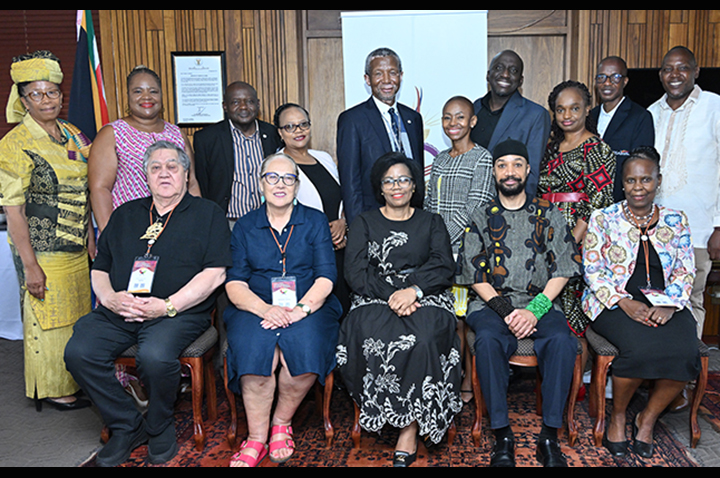 Unisa reaffirms its commitment to decolonial scholarship
Unisa reaffirms its commitment to decolonial scholarship
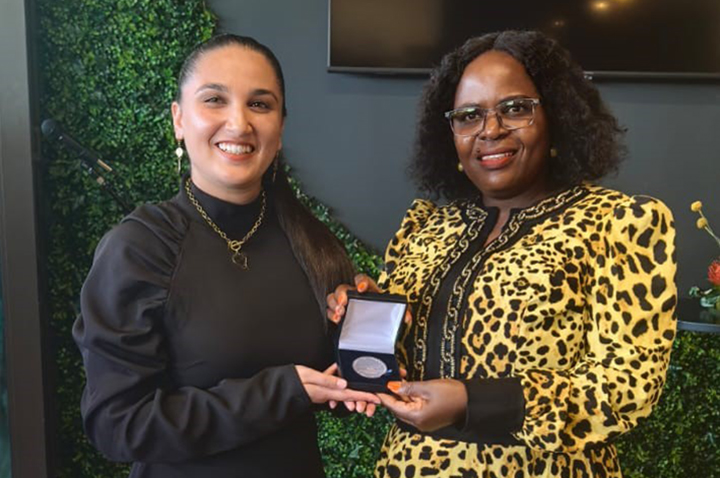 Persistent Unisan awarded the prestigious Johannes Voet Bar Medal
Persistent Unisan awarded the prestigious Johannes Voet Bar Medal
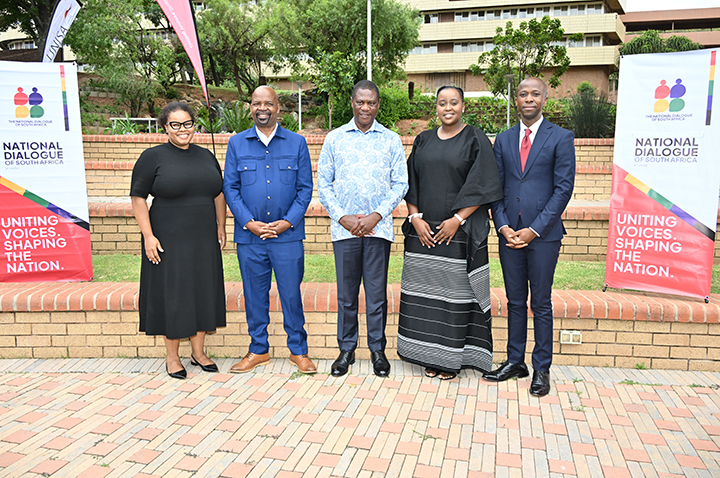 The National Dialogue Steering Committee entrusted with helping to reimagine South Africa's future
The National Dialogue Steering Committee entrusted with helping to reimagine South Africa's future
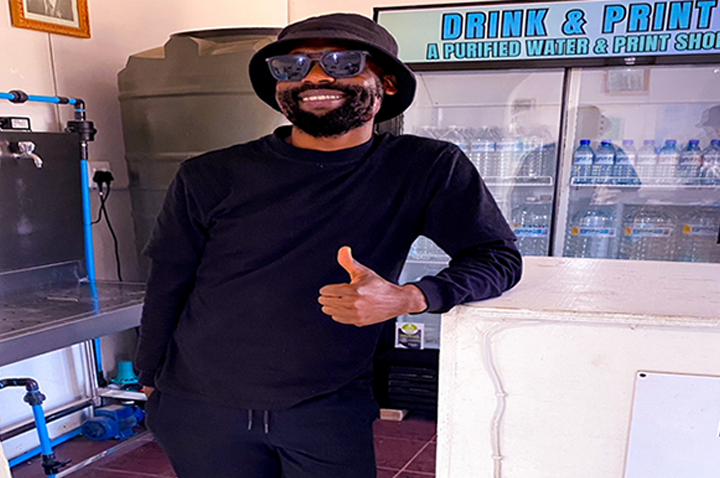 Unisa studentpreneur triumphs at the 2025 EDHE Intervarsity Competition
Unisa studentpreneur triumphs at the 2025 EDHE Intervarsity Competition
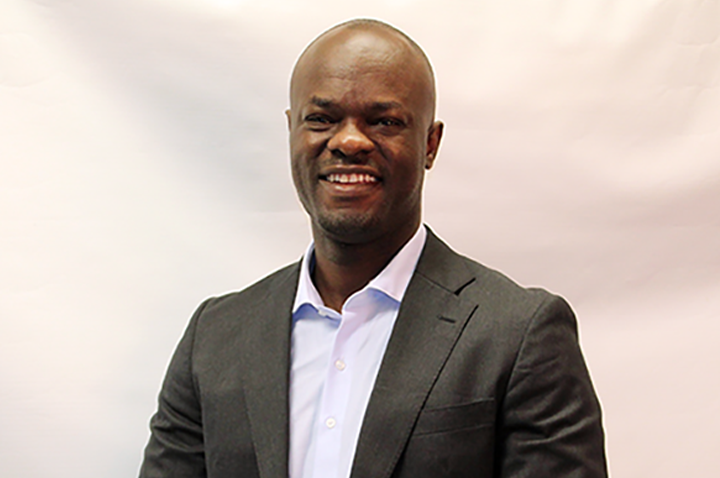 Distinguished scholar awarded prestigious Royal Society Wolfson Visiting Fellowship
Distinguished scholar awarded prestigious Royal Society Wolfson Visiting Fellowship